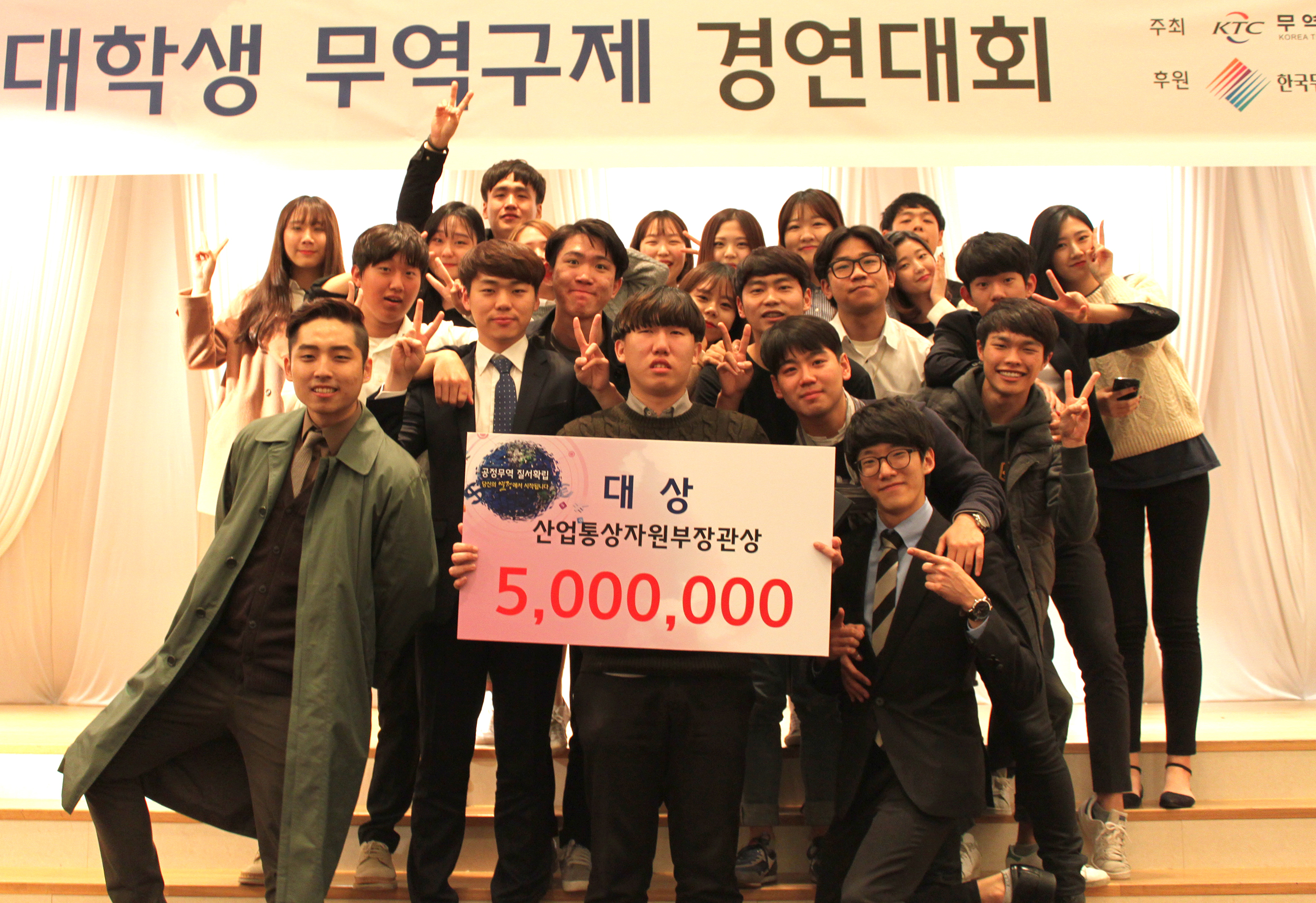School of International Economics and Business Team Wins ‘Grand Prize’ at Trade Remedy Contest N
No.88818- Writer pr
- Date : 2015.11.18 10:11
- Views : 7819
Highlighted for legal analysis such as on customs laws and WTO anti-dumping agreements based on actual cases
Grand prize in 2012 and 2014 as well
‘International Economic Research Association’ of the School of International Economics and Business Team proven to be cradle for fostering trade experts
[November 1, 2015]

<‘International Economic Research Association’ of the School of International Economics and Business that won the ‘grand prize’ at the 2015 Collegiate Trade Remedy Contest>
Students of the ‘International Economic Research Association’ of the School of International Economics and Business received the honor of ‘grand prize’ at the ‘2015 Collegiate Trade Remedy Contest’. They took the ‘first place award’ in this contest in 2012 and 2014, and once again outranked the competitors this year proving that the YU School of International Economics and Business is the cradle for fostering trade experts armed with practical capabilities.
The ‘College Trade Remedy Contest’ was first held in 2005 hosted by the Trade Committee (Chairman Hong Soon-jik) and sponsored by the Korean Federation of Small and Medium Businesses (Chairman Park Sung-taek) with the goal of enhancing interest in trade remedy programs among college students and to foster experts in trade remedy programs. This year marked its 11th year and a total of 218 people from 11 universities around the nation. After undergoing preliminary reviews in September, six final teams went to the main contest including YU.
The main contest that was held at the SMBA DMC Tower DMC Hall in Seoul on October 29 was comprised of theater performances lasting for 40 minutes for each team. In result, the YU ‘International Economic Research Association’ took home the grand prize and won the Minister of Trade, Industry and Energy Award and a five million won cash prize.
This year, a scenario was set with traditional trade remedy programs such as anti-dumping, compensation duties and safe-guard systems, as well as the unfair trading area such as infringement of intellectual property rights and violation of indicating places of origin that have been growing problems recently. The teams demonstrated the series of procedures from investigation of cases to trade remedy judgments in the form of a theatrical play.
The theme presented by the International Economic Research Association was ‘Dumping of Chinese Plywood and Damages to the Domestic Industry’. They presented the course of resolving industrial damages of domestic plywood manufacturers due to dumping exports by Chinese companies through trade remedy programs of the Trade Committee. 22 students of the YU International Economic Research Association prepared for this for fourth months from the end of June, splitting the roles into the script team, props team, and acting team to make the scenario and play more realistic. They demonstrated the series of procedures starting from fact-finding processes on dumping for plywood exports of Chinese companies, and levying customs duties as investigation for trade remedies, and closed with judgments, receiving good reviews from judges and participants.
Kim Hyun-shik (22), a senior in the School of International Economics and Business who participated as the team leader, said, “Instead of focusing too much on dramatic elements, we carefully drew up the scenario to demonstrate the actual roles of the Korean Federation of Small and Medium Businesses and Trade Committee,” while adding, “I think we received good scores by logically expressing the remedy procedures of domestic small and medium businesses by applying legal stipulations such as customs duties laws and the WTO anti-dumping agreement in actual industrial cases.”
The YU School of International Economics and Business International Economic Research Association was founded in 1989. This is an undergraduate academic club for researching international economics and it currently has over 100 member students.